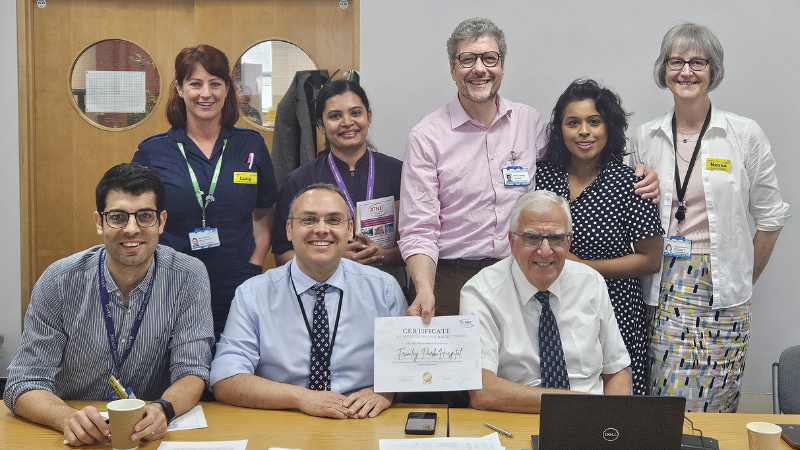24 July 2024

Frimley researchers have been recognised for their hard work in a ground-breaking breast cancer trial.
The team have exceeded their recruitment target for the ATNEC study, which is looking to improve quality of life for breast cancer patients.
Recruiting their first trial patient in June last year, the Frimley Park Hospital team have now totalled nine, achieving the most-improved registration rate over the last six months in comparison to all of the other 88 hospital sites running the study.
“Congratulations to the Frimley team! We really appreciate your efforts recruiting into the ATNEC study and would like to recognise your hard work with a certificate and a very big thank you,” said clinical trial coordinator Amy Smith.
“Without teams such as yourselves we would not be able to continue to perform large randomised clinical trials and answer important clinical questions.”
As well as looking to improve a patient’s quality of life, the ATNEC study could have a positive effect on surgical wait times.
When patients are diagnosed with breast cancer, they sometimes show cancerous cells in the lymph glands in the armpit. Standard treatment is chemotherapy to shrink the cancer before surgery. After surgery, there is further treatment to the lymph glands, either radiotherapy or more surgery.
Often, the lymph glands will be removed from the armpit, but this surgery can cause swelling known as lymphoedema. This arm swelling is permanent and happens to one in five patients. It can be controlled to some degree by patients using compression stockings on the arm but in addition to the swelling, patients can experience frozen shoulder or pain in that area. All of these problems have an impact on patients’ quality of life, daily activities and work.
However, in 40% to 70% of cases, the chemotherapy works so well it removes all cancer cells in the armpit. The ATNEC trial is exploring whether, in these cases, further armpit treatment is needed.
If the research proves successful, the study will change clinical practice nationally, helping some breast cancer patients avoid a further invasive procedure and adverse long-term side effects. It would also prove more cost-effective for the NHS.
“The ATNEC research question continues to be a priority for both patients and clinicians alike,” added Amy Smith. “As a de-escalation trial, ATNEC will have a positive impact on surgical wait times – due to at least 50% of patients avoiding further axillary surgery.”
Pictured are members of the Frimley ATNEC team: Goran Ahmed, general, emergency and breast surgeon; Lucy Scott, breast clinical nurse specialist; Panagiotis Koliou, consultant medical oncologist; Teena Kunnath, clinical research practitioner; Hisham Osman, principal investigator for the stud, and consultant and oncoplastic breast surgeon; Raouf Daoud, breast consultant surgeon; Tharsi Sarvananthan, radiology consultant; Vanessa Newman, associate specialist breast clinician.

